Mootral: Saving the climate, one cow at a time
Join the MOOvement. Help us save the climate one cow at a time
Mootral, a Swiss AgriTech startup, produces a natural animal feed supplement that significantly reduces methane emissions from ruminants – animals that chew their cud, like sheep and cattle. Mootral’s innovative technology is tackling climate change, one cow at a time.
Climate change is the defining issue of our time. According to the world’s most preeminent scientists, we have just 12 years to avert climate chaos.1
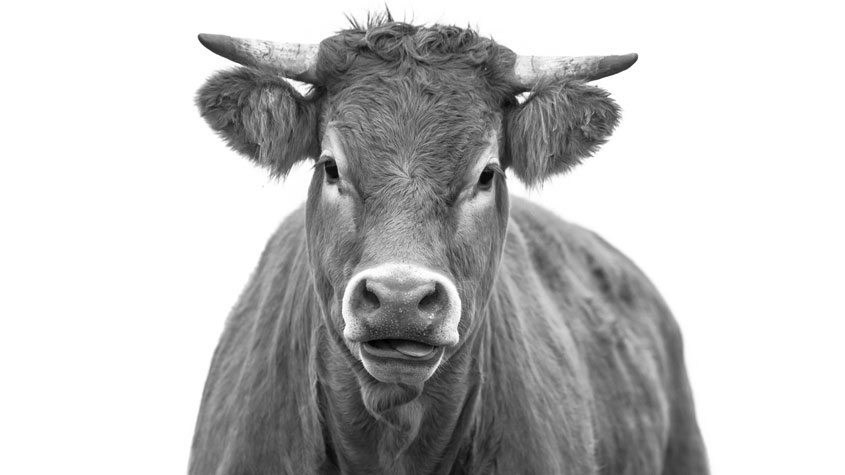
Emissions from food and agriculture
Global greenhouse gases (GHG) emissions generated by the food and agriculture industry today are:
If we fast-forward to 2050 there will be an estimated 9.8 billion people5 and 2.5 billion cows on earth6. Demand for beef7 and for dairy products8 will increase by 73 percent and 58 percent respectively.
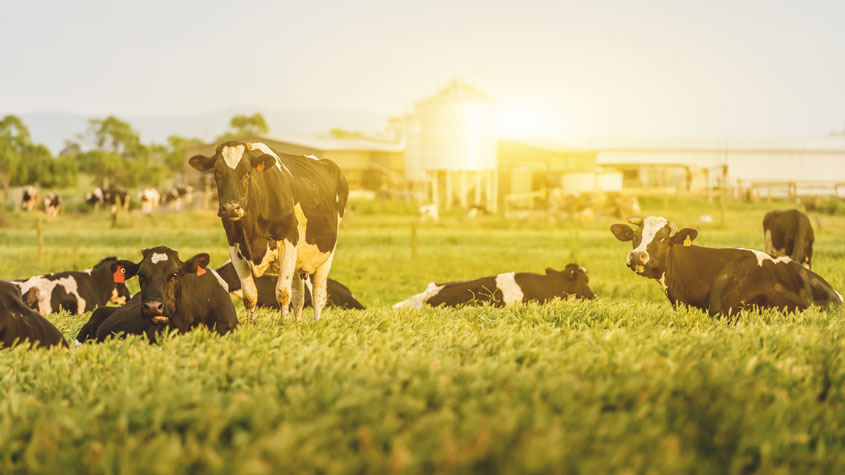
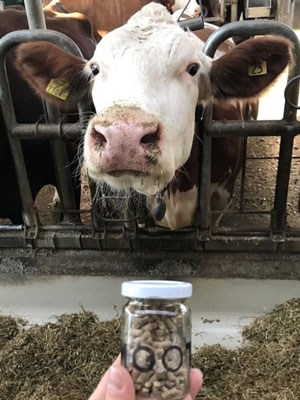
reduces methane emissions from enteric fermentation
of ruminants. (Photo: Courtesy of Mootral)
You might ask what’s the problem? Well, over the last five years methane emissions have increased by 50 percent. And over a 20-year period9, methane traps up to 84 times more heat than carbon dioxide (CO2). As ruminants, cows produce methane; the average cow emits 500 liters of methane every day. So, while livestock produce high value foods, such as milk and cheese from straw and grass, and make an important contribution to a healthy human diet and global food security, it is really important that we find a way to reduce the levels of methane they produce.
About the technology
Mootral is a natural feed supplement that significantly reduces methane emissions from the enteric fermentation of ruminants and is the result of extensive research and development. It is based on a proprietary combination of active compounds from garlic and bioflavonoids derived from citrus. The company’s research shows a nearly complete inhibition of emitted methane in laboratory experiments (in vitro) and, depending on animal breed, age, farm conditions and feed regime, a reduction of up to 38 percent under real farm conditions (in vivo). Mootral can be easily integrated into the feed chain to suit the needs of different farming systems.
By feeding the 1.5 billion cows on earth with Mootral it would be possible to achieve an annual CO2 reduction* of 1.5 Gigatons (that’s 15 plus eight zeros (1500000000) metric tonnes).
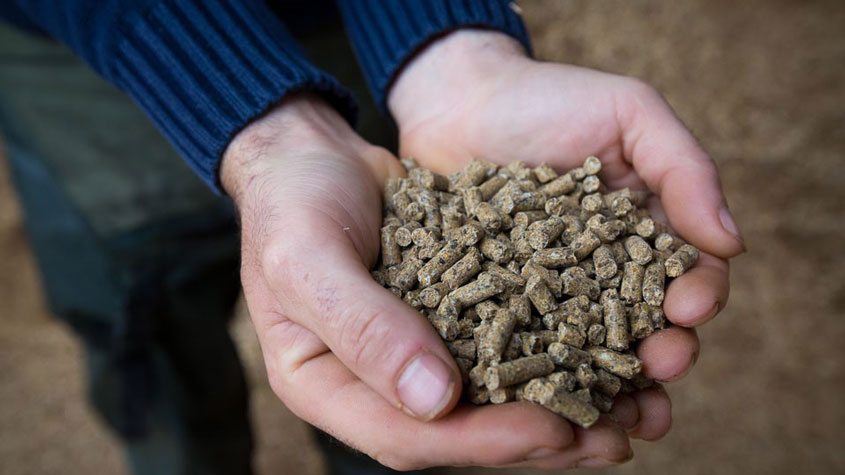
Read how Mootral was discovered at https://www.blog.mootral.com/mootral-and-the-eureka-moment/
Mootral and intellectual property rights?
Mootral is covered by a number of patents. These rights protect the innovation and make it possible to exclude others from making, using and selling the invention. At this stage, the company’s innovation focus is on reducing the methane production of ruminants. The company has also sought to protect its technology internationally through WIPO’s Patent Cooperation Treaty.
IP protection is especially important for a start-up likes Mootral that doesn’t have the same [market] power as big players. Start-ups need to protect their innovation because only then does it make sense for them to keep innovating and developing new solutions.
A patented innovation is an attractive commercial proposition and with a patent a company can market its innovation more effectively. The 20-year term of exclusivity that a patent provides, gives companies like Mootral an opportunity to advance their work and to come up with new patentable creations that further enrich existing platform technologies that seek to solve existing and future problems.
Innovation is crucial to creating a green future
The team at Mootral believes that innovation is critical in building a green future.
Innovation means using new technologies and new ways of thinking to add value to an (existing) idea or product and to bring about substantial benefits for society.
If anything can do magical things – it’s innovation.
Climate change is the defining issue of our time. Without substantial progress in bringing down GHG emissions, we are on a path towards large increases in the planet’s temperature.
The path to success will require innovation across every polluting sector. In this century, we need solutions to reduce the emissions of all sectors and we need to deploy them at massive scale.
Innovation has all these powers. If anything can do magical things – it’s innovation.
Challenges encountered in developing Mootral
In developing Mootral, the company has faced a number of challenges. Scientifically, the biggest challenge has been to fine-tune the application of Mootral in vivo to achieve the highest efficacy in reducing methane while maintaining the animal’s welfare and productivity.
Commercially, the greatest challenge is demonstrating Mootral’s efficacy under a variety of commercial farm conditions; and finding partners that are not just forward thinking but also ready to lead innovation in their own ecosystems and beyond.
At the government level, gaining support requires primary, long-term scientific results from recognized national research institutes under typical local conditions. The main challenge for political institutions is the fact that emissions from agriculture on a national level remain quite unknown. This is particularly so with respect to methane from enteric fermentation, which is a rather underrepresented subject. That is why, putting a cap on these emissions or including reductions of enteric methane into national GHG inventories is such a challenge.
How policymakers can support innovation for a green future
Governments are just as instrumental to the moovement as all the other key players. Mootral expects them to drive change through the use of policies and legislation, national targets, and caps, and incentives as well as penalties. The team is currently working on several initiatives with governments in various countries to combat emissions at the national level, which is where governments can take a stand in fighting climate change, specifically within their own borders.
Join the MOOvement. Help us save the climate one cow at a time.
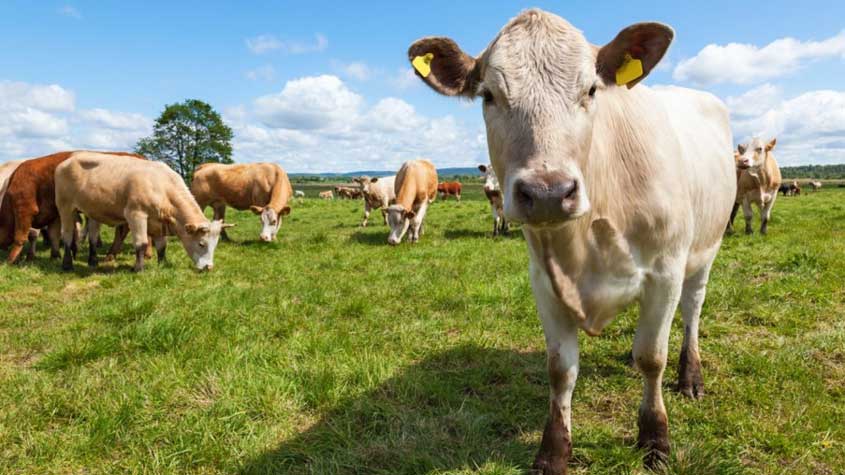
Mootral’s message to the beef and dairy industry:
- Innovate from within. Improve the carbon footprint of your supply chain credibly and transparently.
Mootral’s message to farmers:
- Boost your income through increased productivity and unlock additional revenue sources from industry and the public, for example with voluntary carbon credits through the reduction of methane emissions (CowCredit).
Mootral’s message to consumers:
- Continue to enjoy real beef and dairy products while helping to save the environment with climate smart products.
Mootral’s message to governments:
- Curb climate change and achieve carbon reduction commitments while protecting and supporting the local agricultural sector.
Mootral is not just a product, it is a solution that will help farmers, businesses, policymakers, and consumers reduce their CO2 footprint through climate-smart cows. Mootral is an investment in the welfare of livestock, the welfare of the people above all the welfare of our planet.
Thomas Hafner
Mootral’s potential impact
We produce a specialist barista milk for some of the country’s top coffee shops. The ethos and values of the coffee scene consumer base tend to be environmentally focused. They are quite discerning about their environmental impact. Dairy-free alternatives are becoming increasingly popular. The companies who are promoting these products are well funded and are marketing themselves heavily as being environmentally friendlier than cow’s milk.
We want to push back and show our industry has a responsible attitude when it comes to the environment. By showing that we can reduce emissions not only allows us to proactively engage with the debate about the status quo, but it also shows that we have a progressive mentality and want to constantly improve our footprint, irrespective of how well it competes with the alternatives.
One of the main reasons we believe in Mootral as a significant opportunity for the livestock sector is its scalability. It doesn’t have to be unique to us, other farms can use it as well and that is the long-term aim; it needs to be adopted industry-wide to maximize its impact.
Mootral is developing the concept of CowCredits ‒ so that the reduction in methane achieved by feeding Mootral can be converted into a carbon credit that can be traded in the voluntary market, enabling governments, businesses and individuals to offset their carbon emissions. This enables the supplement to become affordable and attractive throughout the supply chain, which is so important because although some farmers would like to adopt methods to reduce methane, if it’s not commercially viable then a mass impact wouldn’t be a realistic goal.
We’d like to think farmers could be incentivized to adopt this opportunity to reduce methane emissions. Perhaps major players in the agri-food/retail sector could benefit from encouraging their suppliers to feed it to their cows in return for CowCredits. At Brades, we’re excited to set the standard for the industry. Our product is traceable, affordable, highly nutritious and now, climate-smarter.
Joe Towers, Brades Farm, UK, one of Mootral’s flagship farms explains.
Read the full report.